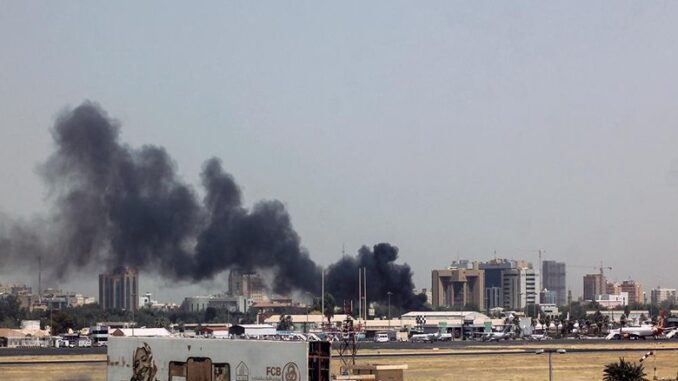
Fighting intensified in Sudan at the week-end, with aid workers calling on the warring parties to allow humanitarian convoys through to help the millions of civilians caught in the crossfire.
Ten weeks of war between the army, led by General Abdelfattah al-Burhane, and the paramilitary Rapid Support Forces (RSF) of General Mohamed Hamdand Daglo have already left over 2,000 people dead and more than 2.5 million displaced and refugees.
Again on Friday, Khartoum residents told the media of “artillery bombardments” in various parts of the capital, where millions of civilians survive in the sweltering heat without electricity and often without water. And, since Wednesday, military and paramilitary forces have been clashing with heavy weapons in the Kordofan region bordering Darfur, according to local residents.
On Wednesday morning, an umpteenth truce officially came to an end. Although for three days the fighting itself had subsided, local residents continued to report troop movements suggesting an escalation. Faced with these preparations, as soon as the ceasefire ended, the American and Saudi mediators threw in the towel.
“On Wednesday, we postponed the negotiations because they are not progressing as we would like,” explained Molly Phee, Under Secretary of State for Africa. “These ceasefires have not been respected enough, even though they have allowed vital humanitarian assistance to be transferred,” she added to parliamentarians.
In Geneva on Monday, the international community pledged $1.5 billion in aid to Sudan – not even half of the estimated needs. In Sudan, one of the world’s poorest countries, 25 million people need this aid to survive, while two-thirds of hospitals are now out of action and the rest are on the verge of closure due to lack of supplies.
